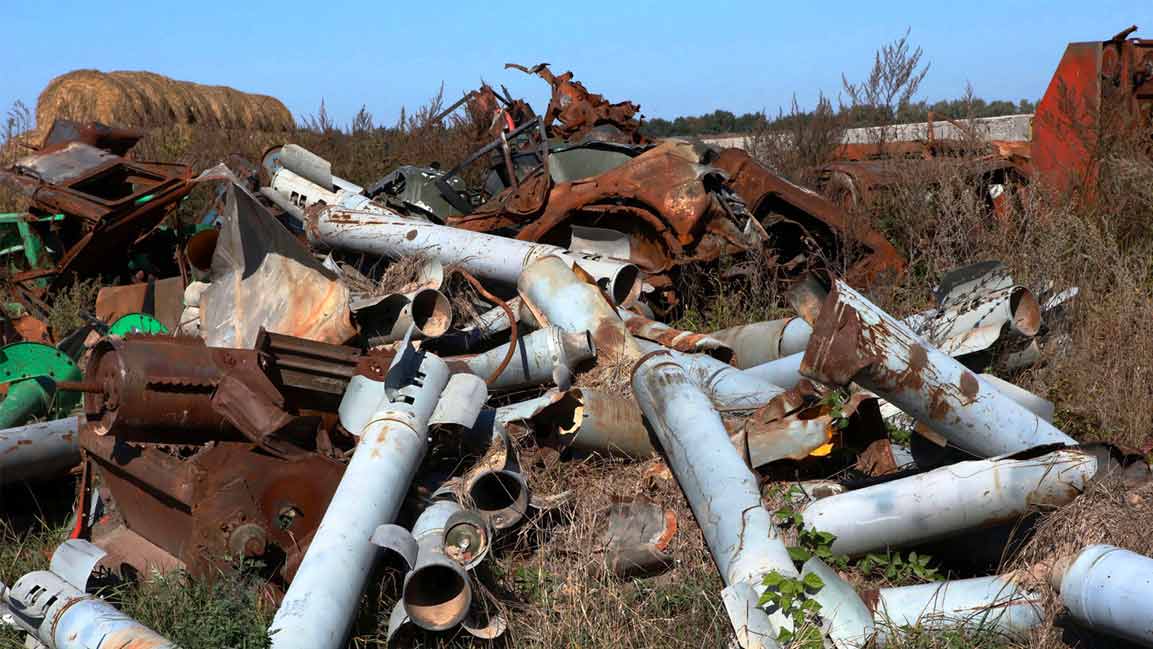- | 9:00 am
The 3 phrases that are putting us deeper into a climate hellhole
Phrases like ‘net zero’ and ‘decarbonization’ need to be removed from our climate lexicon so that we don’t face even more missed targets and corporate greenwashing.

It’s that time of year again, when reflections and predictions reach a heady peak. For those of us working in climate, it’s no different—only this year I’d like to suggest taking the opportunity to completely revamp the way we talk about climate change and solutions. There are some commonly used words and phrases that create counterproductive behaviors and attitudes, and the last thing we need right now are more obstacles. Here are three of them that we should phase out in 2024.
“NET ZERO”
This phrase brings us comfort, because zero makes us feel better—as though if we set this as a target, we’re eradicating the problem.
But in climate, this is a false target, because net zero still isn’t enough. Humanity could abate 100% of its ongoing emissions today and we still wouldn’t get to 1.5 degrees Celsius.
Net zero isn’t even defined as abating 100% of emissions. It’s a construct that allows emitters to partially reduce their emissions (or maybe not reduce them at all), and then purchase some questionable carbon credits to offset the rest, which then allows them to make a public claim that they’re “net zero.” It’s both a bogus target that doesn’t actually fix the problem, and an enabler for emitters to continue emitting.
Humanity’s goal should be absolute zero, wherein we maximally reduce ongoing emissions and also draw down accumulated emissions. While some may say that this feels like an unattainable goal in the short amount of time we need to hit it, 1) It’s what realistically needs to happen to combat the climate crisis, and 2) Only by setting the appropriate target will we push to right-size solutions. That is, not making minor tweaks to pollutive industries but actually re-creating industries so that they are designed for sustainability.
“DECARBONIZE”
The giveaway that this phrase is problematic is that there is no equivalent moniker for its inverse. We never say that “the oil and gas industry is carbonizing.” We describe that process as what it is: emitting, or polluting. When we talk about addressing the emissions problem, though, we don’t put an equal and opposite phrase and say polluters need to simply stop polluting. We use softer terms like they need to mitigate or they need to reduce and, eventually, abate.
The word decarbonize gives a false sense of comfort that something could be a solution when it’s not. Because there’s no clear definition, a company can reduce its carbon footprint by a tiny amount and still claim it’s decarbonizing.
Say a company selling bottled beverages switches to different plastic bottle caps that are 20% lighter. This puts a bit less weight on the trucks when the bottles are being shipped, which reduces the fuel used by a small amount. This company now gets to say it has decarbonized its transportation logistics. It’s too easily turned into a tool for greenwashing.
“IF ONLY WE COULD GET PEOPLE TO _______”
Fill in the blank with whatever human behavior change you think might save the world. It could be going vegan, recycling more plastic waste, or reducing our addiction to fast fashion.
But let’s face it, most people are motivated by self-interest and economic gain, and they’re not going to do something just because it’s good for the planet. In order for them to adopt a behavior, it needs to benefit them somehow, either economically or personally. Why turn vegan if alternative protein products taste worse, cost more, and have poorer nutrition? Why recycle when it’s often more convenient to throw things in the garbage? Why buy more expensive eco-friendly clothes when fast fashion is cheaper and more abundant?
In order to drive adoption of sustainable products and technologies, we need to work in line with human nature, not against it. New sustainable products and technologies need to perform better and/or cost less than those they’re replacing. That way, the economically rational purchase decisions will also be the eco-friendly decisions. We should stop putting the onus of responsibility for change on individual consumers, and instead we should channel efforts toward developing products and technologies that are uncompromising on both economic and environmental returns.
If we want to solve the plastics problem, we need alternative materials that are earth-digestible and can also be produced at price parity to petroleum-based plastics. If the new materials are sold with a green premium, they may be adopted by a segment of target customers, but ultimately they won’t achieve mainstream adoption.
If we want to eliminate the destructive environmental impacts of agriculture and food production, the solution isn’t convincing consumers to eat less of their favorite foods; the solution is to deploy technologies that produce food using less land, water, and harmful chemicals. The critical part is that these technologies need to be equally or more profitable for the farming industry than conventional practices.
The climate crisis is daunting—and it’s also solvable. But the language we currently use is deterring us from reaching solutions because it tricks us into thinking that small tweaks and incremental adjustments will get us there. We need to talk about it in ways that guide our mindsets toward real change.







































